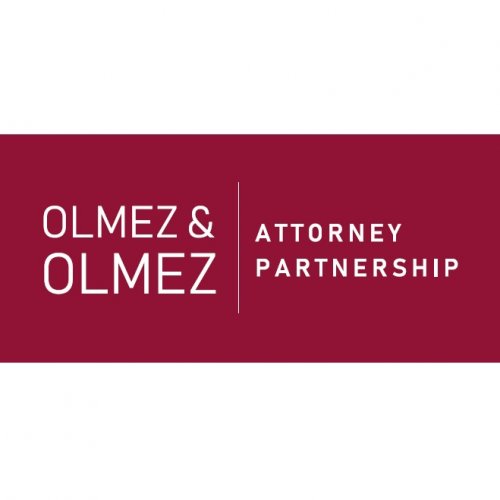Best Oil, Gas & Energy Lawyers in Kartal
Share your needs with us, get contacted by law firms.
Free. Takes 2 min.
List of the best lawyers in Kartal, Turkey
About Oil, Gas & Energy Law in Kartal, Turkey
The region of Kartal, located within the vibrant city of Istanbul, plays a significant role in Turkey's growing oil, gas, and energy sectors. As a major hub within Turkey, Kartal is positioned within a nation that has long been a crossroads of energy transit between the East and West. The country's rich natural resource base combined with strategic geopolitical location makes energy law a critical aspect of its legal environment. Turkish energy law encompasses a range of areas such as energy production, oil and gas exploration and development, distribution, and environmental regulations.
Why You May Need a Lawyer
Legal representation in the oil, gas, and energy sectors may be necessary in several situations. For businesses, this could include negotiating and drafting contracts, ensuring compliance with local and international regulations, protecting intellectual property, and addressing environmental regulations. Individuals may need legal advice when dealing with land ownership and lease agreements, navigating investment opportunities, or resolving disputes regarding royalties and resource rights. Additionally, those engaged in renewable energy projects might require legal counsel for licensing, subsidies, and compliance with environmental legislation.
Local Laws Overview
The legal landscape of oil, gas, and energy in Kartal is shaped by several key regulations and frameworks. Turkey’s Petroleum Law governs the exploration and production of oil and gas resources, safeguarding both domestic operations and foreign investments. The Turkish Electricity Market Law regulates the production, transmission, distribution, and trade of electricity, emphasizing the liberalization and commercialization of energy markets. Furthermore, environmental laws such as the Environmental Framework Law impact all energy-related activities, requiring compliance to mitigate and manage impacts on ecosystems. Local ordinances in Kartal complement these national laws, addressing specific regional concerns and needs.
Frequently Asked Questions
What are the main legal challenges in the oil and gas industry in Kartal?
Key challenges include navigating regulatory compliance, understanding land rights and environmental obligations, and managing relationships with local and national governmental bodies.
How does Turkey’s government support renewable energy projects?
The Turkish government offers incentives such as feed-in tariffs, reduced taxes, and grants for renewable energy projects to promote sustainability and diversification in the energy sector.
What is the role of the Energy Market Regulatory Authority (EMRA)?
EMRA regulates and supervises electricity, natural gas, petroleum, and LPG markets within Turkey, ensuring fair competition and adherence to legal frameworks.
Are foreign investments allowed in Kartal's energy sector?
Yes, foreign investments are encouraged through various legislative frameworks that provide protection and incentives for global investors in the energy sector.
What should I consider when drafting an oil and gas lease agreement?
Key considerations include terms of exploration and production, royalty payments, duration, environmental compliance, and dispute resolution mechanisms.
How do environmental laws affect energy projects in Kartal?
Environmental laws require energy projects to undergo rigorous impact assessments and adhere to strict regulations to mitigate environmental damage, ensuring sustainable development.
Can I develop a small-scale solar project on my property?
Yes, individuals can develop small-scale solar projects, but must ensure compliance with licensing and regulatory requirements set by EMRA and the local authorities.
What licenses are required to operate an energy business in Turkey?
Licenses vary depending on the scope of operations, including production, distribution, and supply licenses, all of which must comply with relevant industry regulations.
How do I handle a dispute with an energy company?
Dispute resolution can be pursued through negotiation, arbitration, or legal action, with the help of a qualified lawyer experienced in energy law.
What are the penalties for non-compliance with energy regulations?
Penalties include fines, revocation of licenses, and possible legal action, stressing the importance of maintaining compliance with all applicable laws.
Additional Resources
For more information and assistance, consider reaching out to the following organizations: The Energy Market Regulatory Authority (EMRA), The Ministry of Energy and Natural Resources, local chambers of commerce, and legal associations specializing in energy law. These organizations can provide guidance, support, and additional resources for individuals and businesses alike.
Next Steps
If you require legal assistance with matters related to oil, gas, and energy in Kartal, start by consulting with a legal expert specializing in the energy sector. Research law firms with a strong reputation in this field and request consultations to understand your legal options. Engage a lawyer who can navigate the complexities of both local and national laws to protect your interests and ensure compliance in your projects.
Lawzana helps you find the best lawyers and law firms in Kartal through a curated and pre-screened list of qualified legal professionals. Our platform offers rankings and detailed profiles of attorneys and law firms, allowing you to compare based on practice areas, including Oil, Gas & Energy, experience, and client feedback.
Each profile includes a description of the firm's areas of practice, client reviews, team members and partners, year of establishment, spoken languages, office locations, contact information, social media presence, and any published articles or resources. Most firms on our platform speak English and are experienced in both local and international legal matters.
Get a quote from top-rated law firms in Kartal, Turkey — quickly, securely, and without unnecessary hassle.
Disclaimer:
The information provided on this page is for general informational purposes only and does not constitute legal advice. While we strive to ensure the accuracy and relevance of the content, legal information may change over time, and interpretations of the law can vary. You should always consult with a qualified legal professional for advice specific to your situation.
We disclaim all liability for actions taken or not taken based on the content of this page. If you believe any information is incorrect or outdated, please contact us, and we will review and update it where appropriate.









